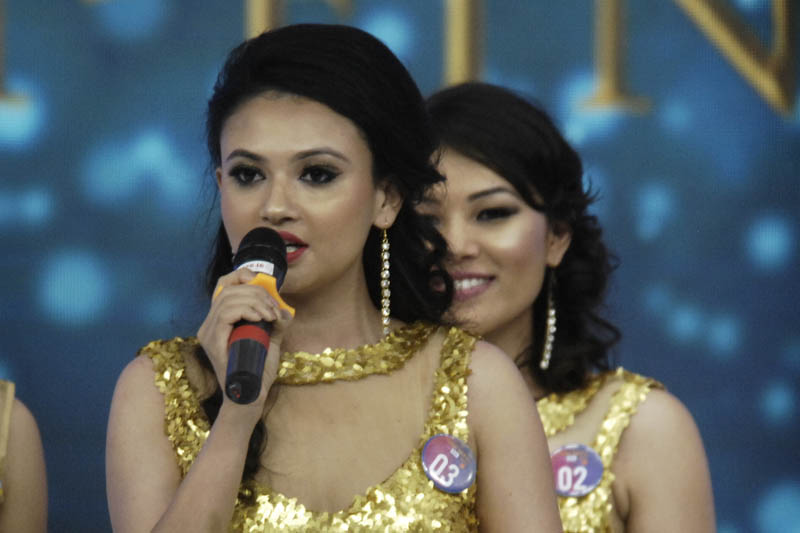Doing beauty contests differently: Focus on leadership, empowerment
I have never been a fan of beauty contests. I always found them to be too frivolous and empty of real content although, to be fair, the contestants have to demonstrate, through the selection, a certain degree of understanding of the society, its dynamics and key issues of national interest.
It is also true that the winners of such competitions often use the platform offered to them by their new celebratory status as a medium to promote awareness on many social issues afflicting the country.
Yet at the end of the day it is a beauty contest and not really a competition where your IQ is leveraged, and only a limited number of emotional intelligence competences are tested like effective communication in the form of public speaking that are of secondary importance in terms of holistic personal development.
Surprisingly a new approach to beauty contest is challenging these views, perhaps biased and is helping understand the truly potential public “interest” nature of beauty contests. I recently stumbled on a series of articles published by the Australian Broadcasting Corporation, ABC, around a very interesting model of beauty pageantry, one that is more focussed on empowerment and upliftment rather than displaying the physical features and “pumped up” confidence.
It is called Kimberly Girl programme and is named after the vast north-most region of West Australia, rich in aboriginal culture but deprived and neglected.
An article I found while researching for this piece had the following headline: “If the Kimberley was a country, it would have the worst suicide rate in the world”.
The native populations of Australia are the ones suffering the most there despite affirmative action policies and investments.
From such a gloomy background comes the idea of creating a pageant contest targeting aboriginal women, many of whom experience precarious living conditions, embracing a different, more holistic concept of beauty, one not just focused on esthetics. The contest is a comprehensive leadership programme whose aims are not celebrity and fame. Instead young aboriginal women can have a pathway to success too provided they are properly supported. There is an initial one-week programme, after which the selected ones go through an extensive two-weeklong personal development and holistic programme that culminates in the finals.
Reading the story published on the ABC, you can truly grasp the transformational dimension of the contest, with the lives of many participants uplifted and empowered, with many of them not only finding financial stability but also a new sense of purpose in life.
I am aware that such a diverse country as Nepal has many pageantry competitions, some along ethnic lines, and on the top there is the Miss Nepal contest.
Can all these competitions veer towards a much stronger empowerment model rather than just being focussed on the most “classic “ aspects of physical appearances and externalities like showing extreme self-confidence? I have no doubts that all the participants attending beauty competitions learn a lot and improve their skills considerably, but my proposition or, perhaps, challenge is to really focus on values- based leadership and self-empowerment rather than the standard approach.
First of all, how accessible and inclusive are such competitions? Are young women from marginalised groups being able to participate? What about young women who are disable or perhaps victims of burn and acid violence? I do come from a country whose culture is overwhelmingly obsessive with physical appearances.
That’s why I do understand that the above questions might put off someone.
What about reframing such competitions, especially those locally organised, into leadership and empowerment programmes like the Kimberly Girl programme? Can the organisers partner with women-led social purpose organisations to truly embed such reframed programmes with contents that truly empower and help participants to grow truly self-confident, accepting themselves for the talents they have and broaden their horizons beyond public speaking? Imagine young girls from a vulnerable background who, after participating in such events, can truly feel more confident and supported to find their own path in life, free of any want or coercion.
Could successful female women, not only those famous nationally but also local role models, be them politicians, businesswomen or even members of the army or police, mentor them, supporting them to overcome the daily obstacles they face? Can scholarship and other personal development opportunities be attached to these initiatives where physical features are going to be the last thing to be evaluated in such a way that all families, even the most conservative ones, would be proud of their daughters participating? The Kimberly Girl Programme is now expanding, and the Government of Western Australia is also financially supporting it. I am convinced that many former Miss Nepal participants have a strong desire to do something lasting and transformative for the country.
Many of them are already committed to push ahead the agenda of a more inclusive nation for all young women and they might be keen to challenge the existing patterns.
Considering the hardships faced by many young girls across the country, we should all be feminists and support novel and creative ideas that are transformational not only in form but also in substance. Rethinking the way beauty contests are organised in a country like Nepal could be a good start.
Galimberti is the co-founder of ENGAGE, an NGO partnering with youths living with disabilities
I am convinced that many former Miss Nepal participants have a strong desire to do something lasting and transformative for the country. Many of them are already committed to push ahead the agenda of a more inclusive nation for all young women, and they might be keen to challenge the existing patterns






